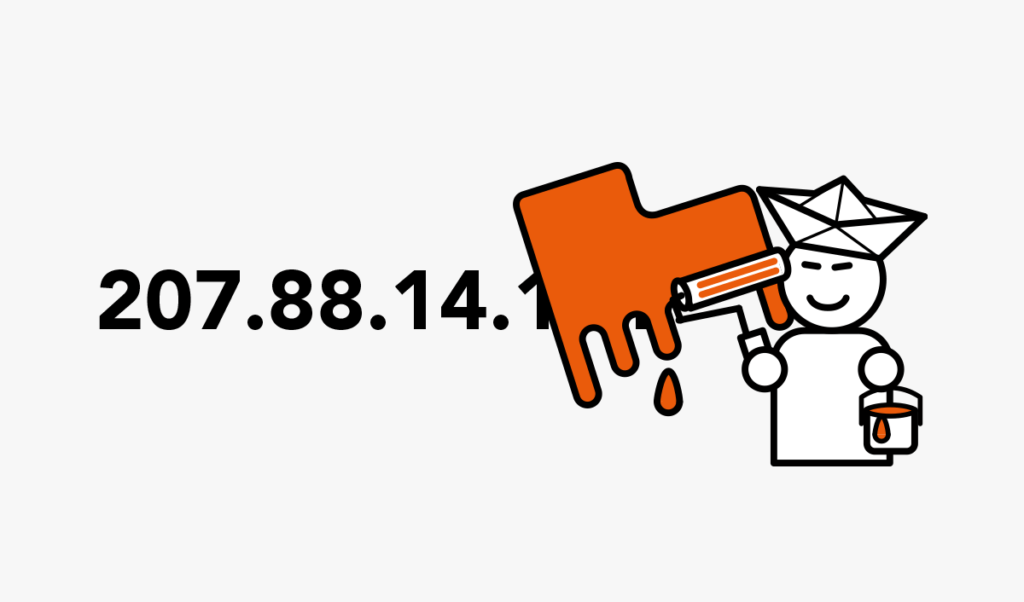For unique identification, a device requires an address within a data network – be it in the home LAN or on the Internet. This is the only way to ensure that data packets reach the right recipient. This is done via the so-called IP address. But this also allows us to draw meaningful and unwanted conclusions about the user. Why it is better to hide the IP address, we’ll tell you here!
Over months the same IP address
The abbreviation IP stands for Internet Protocol – the network standard with which computers communicate on the Internet. The IP address consisting of a sequence of digits such as 10.11.12.13 is your personal communication address. The IP address is dynamically assigned to you by your Internet provider. In this context, dynamic means that the IP address changes – so your current address can be assigned to your neighbor tomorrow and the day after tomorrow to a completely different user.
At least theoretically. Previously, the Internet connection was interrupted by the provider at night and a new IP address was assigned to the customer. Today this is often no longer the case – the number of DSL connections installed and used for connections to the Internet have ensured that we have the same IP address for months. As a result, we are often recognized on the Internet by our IP address.
The European Court of Justice (ECJ) ruled in 2016 that the dynamic IP address of a provider is a personal data set. Personal data are all data which are suitable for determining the real identity of a person – such as a telephone number. The provider that assigns the IP address knows which IP address has been assigned to a customer at a certain point in time.
Let’s say you accidentally download a video that is protected by copyright. Your IP address is logged in the site operator’s log file, which functions like a kind of “logbook” of the web server. It records every video call, the IP address and time of day. If the film distributor holding the rights to the video arrives at this log file during a server scan by the video provider, it immediately recognizes which IP addresses have loaded films illegally. Now it is easy to find out who owns the connection via the Internet provider.
The situation becomes problematic due to the fact that this process is nowadays often automated. Large rights owners such as Warner or Sony get the required court order very easily and can thus query the connection holders belonging to the IP addresses directly from the provider. This results in mass, automated warnings.
Anonymous IP address helps with sensitive searches
Another example: When shopping on the Internet, you leave an order address receipt. If the IP address does not change for months, the shop knows who you are, even without you as a customer logging in with your account. The IP address alone can be used to establish the identity of the subscriber and trace all Internet activities back to this person.
How about the following case: You are a journalist and research a history of the Islamic State (IS). To do this, visit an IS server. This means that your IP address is sent to the IS server as well as to the secret services, which monitor all communication with IS servers.
Ultimately, all searches on sensitive topics you conduct on the Internet can be associated with you – whether they concern health, sexual preferences or political attitudes. If you don’t want to do this, you have to disguise your IP address.
Hide IP address: What can I do?
Two common options for IP anonymization are:
- Tor Network: The Tor Network is a highly secure anonymization network operated by volunteers. If you use it, your own IP address is hidden. Originally it was created for whistleblowers and dissidents who were able to contact journalists confidentially.
The disadvantage of Tor: Because it runs on the volunteers’ computers, the bandwidth can vary greatly, depending on how many computers are currently available and how many users are accessing it. The Tor network can sometimes be so slow that no music stream can be played back over it. Then it’s fast again and even an HD live stream has no problem.
The advantage of Tor: is that it is a non-commercial project where no fees are charged and traceability of the IP address is impossible because each connection is encrypted over three account points. - VPN: You can also route your data streams over a virtual private network (VPN) to hide your IP address.
The advantage: VPN providers are commercial providers: There are costs for you, but there is guaranteed bandwidth and technical support.
The disadvantage: The VPN provider could be legally forced to hand over the user IP addresses. To avoid this, many providers no longer record IP addresses or operate from abroad to protect customers. In addition, you have to trust the provider because you send all data traffic over his lines and unencrypted data could be recorded.
Hiding Your IP is Not Enough
However, hiding your own IP address is necessary for anonymous surfing, but it is not enough. Data collectors, so-called trackers, and other data collectors can also easily identify us. If you want to make sure that your privacy is protected on the Internet, you can use the eBlocker – the smart solution hides the IP address and blocks data-gathering trackers and advertisements – for all devices in your home network.
Important note
Please note that this article was originally published by the former eBlocker GmbH. The contents may be outdated. Today, eBlocker is free of charge and available as Open Source. Check out the new eBlocker Open Source Project.
